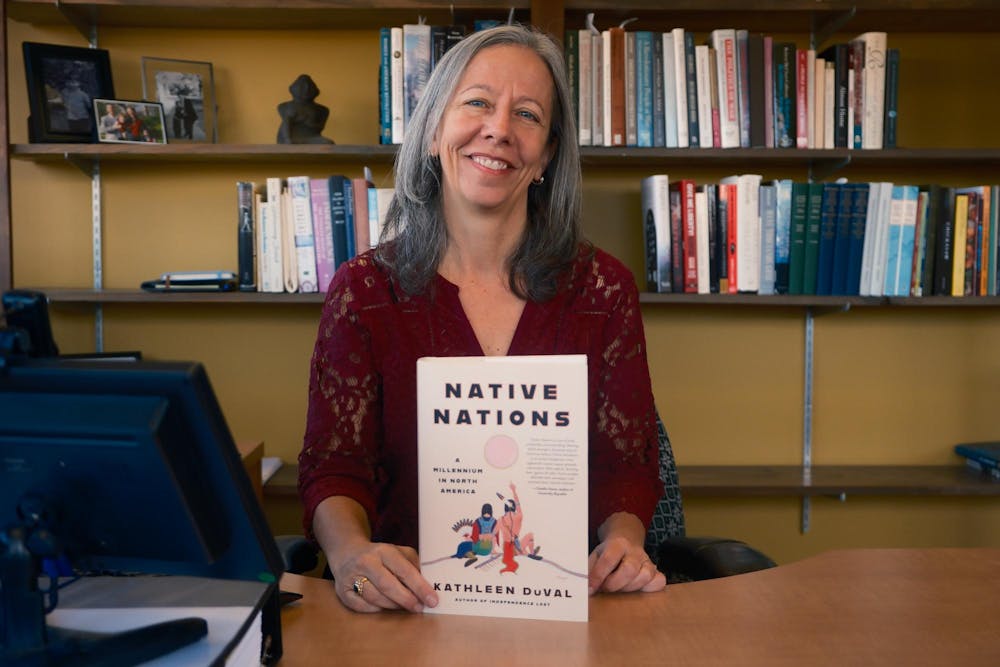Distinguished Professor Kathleen DuVal was recently announced as the 2024 winner of the Cundill History Prize for her novel “Native Nations: A Millennium in North America,” which spans over a thousand years of Native American history in North America.
Awarded annually by McGill University, the Cundill History Prize offers a $75,000 award to a book that demonstrates “historical scholarship, originality, literary quality and broad appeal,” as stated on their website.
“[DuVal is] one of the foremost scholars of Native American history, and that's why I wanted to come here to UNC to study under somebody with that level of expertise,” Patricia Dawson, a former PhD student of DuVal, said.
Dawson said she now uses “Native Nations” to teach her own students at Mount Holyoke College. Dawson, a citizen of the Cherokee Nation, credits her great-great-great aunt Rachel Caroline Eaton — a historian believed to be the first Cherokee woman to earn a PhD — as well as DuVal, for inspiring her to become a professor.
DuVal said she has been teaching history courses for over 20 years, and credits her experiences in academia and her students' questions about Native American history as key inspirations for writing her book.
She also said she sought to raise awareness about the ongoing presence and resilience of Native peoples.
“I think that the way Native American history often gets taught is that Native Americans are sort of people of the past, that they were defeated early on by Europeans or European disease,” DuVal said.

DuVal said she hopes her book helps readers bridge the gap between outdated historical narratives and the reality of Native Americans' active and continued presence today, after centuries of colonialism and an attempted genocide.



